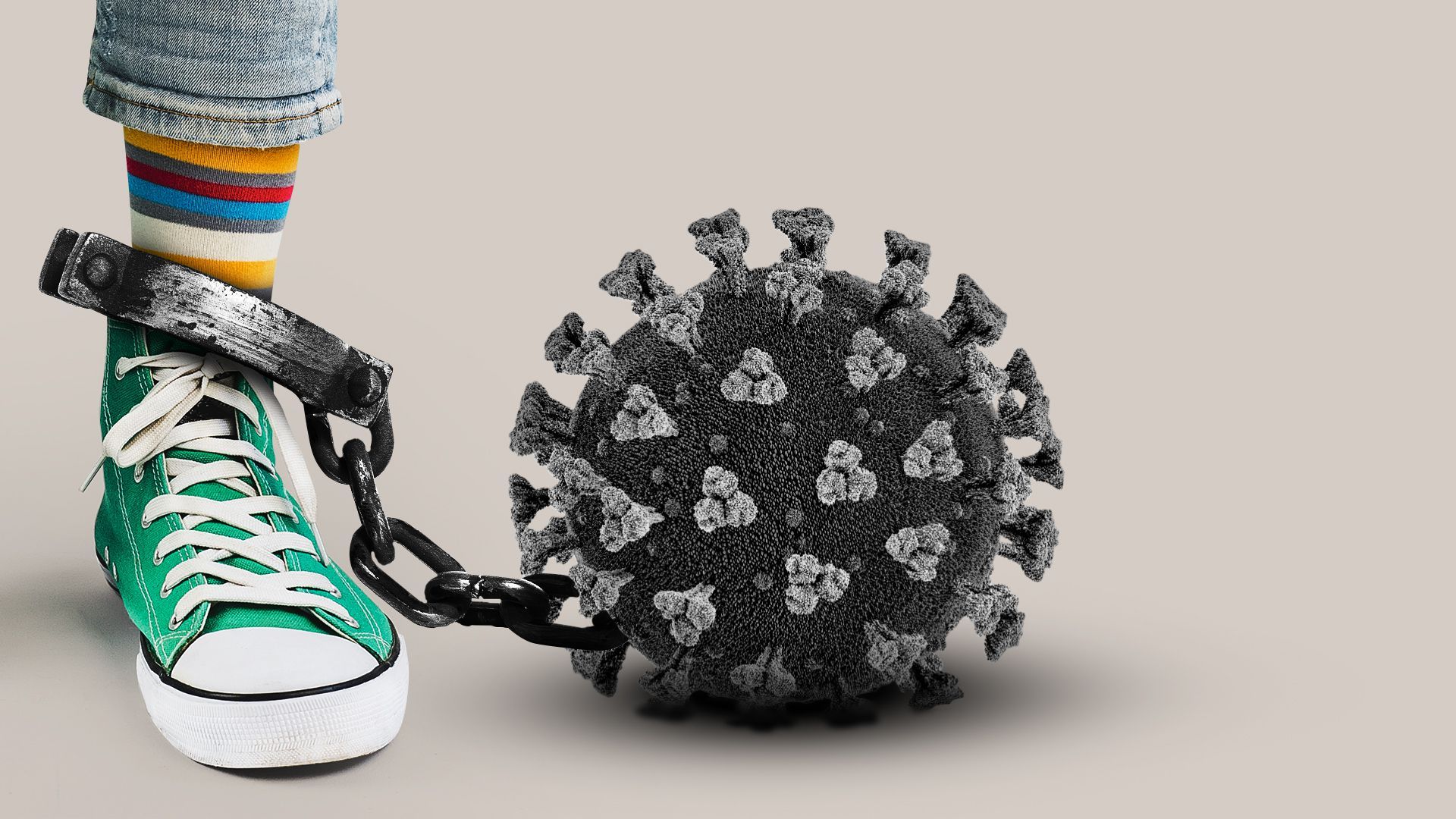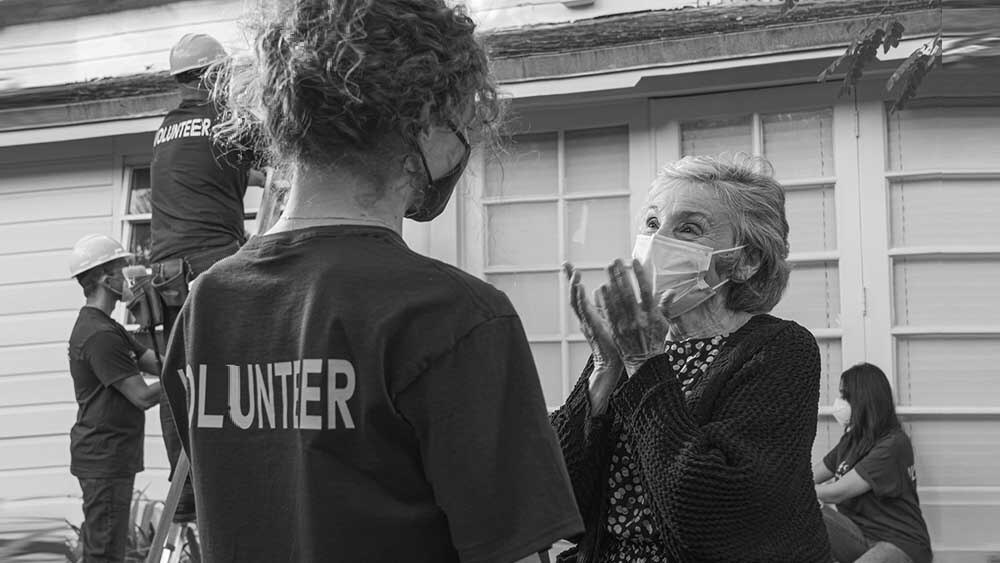| |
| |
| |
| Presented By HCA Healthcare |
| |
| Axios Vitals |
| By Tina Reed ·Apr 01, 2022 |
| Happy Friday, Vitals readers. Today's newsletter is 763 words or a 3-minute read. 🥸 Friendly reminder: It's April Fools' Day. Watch out for the pranksters, today. 😒 This is no joke. Across-the-board cuts to Medicare providers are due to start phasing today following the expiration of a pandemic-inspired moratorium. |
| |
| |
| 1 big thing: Pandemic hit American teens' health behaviors |
 |
|
| Illustration: Aïda Amer/Axios |
| |
| From increased drug and alcohol use to high levels of reported abuse and feelings of mental distress, the pandemic wreaked some major havoc on the health of American teenagers, according to a CDC report released Thursday. Why it matters: The stress and social isolation of the pandemic cut across age groups in ways we're still trying to understand. - But this nationally representative survey from the first half of 2021 is the most comprehensive federal look to date specifically looking at the experience of teens.
"These data echo a cry for help," said CDC acting principal deputy director Debra Houry in a statement. - "The COVID-19 pandemic has created traumatic stressors that have the potential to further erode students' mental wellbeing."
By the numbers: The survey of more than 7,700 high school students was taken between January and June 2021. The teens reported high levels of mental distress, risky health behaviors, economic instability and abuse. Zoom out: The findings come as Congress and the Biden administration are placing more emphasis on behavioral health as the nation emerges from the pandemic. - Congress is eyeing the prospect of mental health legislation this summer that could take up the role of telehealth, the coordination of care and gaps in the behavioral health workforce.
Between the lines: The children's mental health crisis may have been made worse by COVID, but it's not new. The bottom line: Mental health was already a challenge for teens before the pandemic and it's not surprising the collective stressors of a global crisis made it worse for this generation of kids. Share this story. |
    |
| |
| |
| 2. Genomic "data is the new oil" |
 |
|
| Illustration: Sarah Grillo/Axios |
| |
| The Chinese government has identified genetic data as a national strategic resource and is strengthening state control over the country's gene banks and other repositories of genetic information, Axios' Bethany Allen-Ebrahimian reports. Why it matters: The collection and use of genetic information are fraught with ethical concerns over matters like consent and privacy, exploitation of marginalized groups, and a growing transnational trend toward genetic surveillance. - "The Chinese authorities are making a real effort to protect the genetic information of Chinese citizens from non-state actors," Yves Moreau, a geneticist at the University of Leuven in Belgium, told Axios, while carving out a "huge exception for the state."
Driving the news: Newly released draft guidelines prohibit the genetic information of Chinese nationals from being sent abroad and mandate the cataloging of human genetic databases, including data at academic institutions, to be carried out every five years. "It comes from a philosophy that seems to be quite strong right now in China as viewing genetic resources as a strategic resource. Like 'data is the new oil' — genetic data is one of those things," Moreau said. Related: First "gapless" human genome map is unveiled, years after earlier effort |
    |
| |
| |
| 3. Quote du jour |
| "All of a sudden, what used to be a $150-a-day heroin habit has become a $15-a-day habit ... It's a habit that can be very sustainable." — John Koch, director of community engagement at Community Medical Services in Phoenix, told USA Today about one of the driving problems in fighting the national crisis of fentanyl abuse. ( Subscription required.) |
    |
| |
| |
| A message from HCA Healthcare |
| HCA Healthcare is improving more lives in more ways |
| |
 |
| |
| The HCA Healthcare Foundation addresses community needs and health equity via the Healthier Tomorrow Fund, an $80 million fund that provides grants to nonprofits. The fund has allocated $4.5 million to 13 organizations including the American Heart Association and Educate Texas. Learn more. |
| |
| |
| 4. 44 countries have COVID vaccination rates under 20% |
 Data: Our World in Data; Chart: Jared Whalen/Axios The COVID vaccine supply crunch is easing, but in 44 countries — most of them in Africa — less than 20% of the population is fully vaccinated, Axios' David Lawler reports. - In 19, the rate is under 10%.
What they're saying: Those countries "have doses now, and they know that there are more doses available," says Seth Berkley, CEO of the Gavi vaccine alliance and point person for the global COVAX initiative. - After a year of waiting for vaccine doses, the primary concern is now delivery.
|
    |
| |
| |
| 5. Catch up quick |
- Lawmakers say they are close on a $10 billion COVID package. (Washington Post)
- Unfortunately, it's not just your Zoom camera angle, men — you really are losing your hair at a faster clip during COVID. (Axios)
- FDA commissioner Robert Califf said the controversy over FDA's Alzheimer's drug decision impacted experts' trust in the agency. (STAT)
|
    |
| |
| |
| 6. Dog of the week |
 |
|
| Duke. Photo: Emily Cabanatuan |
| |
| Meet Duke, a 7-year-old greyhound rescue from Florida. - He gladly gave up his life of racing and now lazily practices yoga in Warrenton, Virginia, with human Emily Cabanatuan who works in government affairs in D.C. (Looks like he's mastered child's pose.)
1 fun thing: Speaking of dogs, Axios Philadelphia just wrote about a ice cream shop that opened in Philly, just for pups. Brilliant. |
    |
| |
| |
| A message from HCA Healthcare |
| HCA Healthcare colleagues are dedicated to serving the community |
| |
 |
| |
| HCA Healthcare colleagues continue to show up and support our communities throughout the COVID-19 pandemic. Here's how: In 2021, colleagues supported more than 5,600+ community organizations through 99,600+ volunteer hours and $17 million in donations with HCA Healthcare matching. |
| |
 | It's called Smart Brevity®. Over 200 orgs use it — in a tool called Axios HQ — to drive productivity with clearer workplace communications. | | |









No comments:
Post a Comment